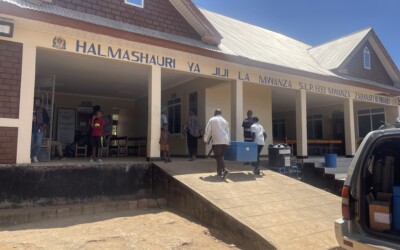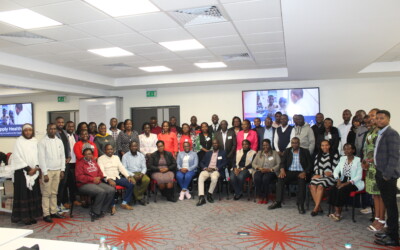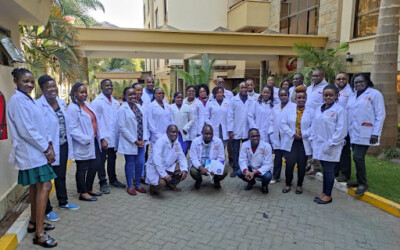Project Background
The COVID-19 pandemic brought unprecedented global health challenges, making immunization a top priority for countries worldwide. Swift and comprehensive responses were necessary to mitigate its effects, leading to the rollout of COVID-19 immunization campaigns. inSupply Health and JSI, funded by the ELMA Foundation, united with other stakeholders to support COVID-19 immunization efforts in Tanzania and Kenya. While both countries shared the goal of vaccinating their populations, they adopted different approaches to administer the vaccines, facing unique challenges and achievements in achieving widespread immunization coverage. The project’s primary objective was to provide technical assistance and support to the Ministries of Health (MOH) in both countries, along with other stakeholders like the Immunization and Vaccine Development Program (IVD) in Tanzania and the National Vaccine Immunization Program (NVIP) in Kenya. inSupply focused on the Singida and Njombe regions in Tanzania’s mainland and Zanzibar, while in Kenya, they concentrated on the high-risk counties of Nairobi and Mombasa, with Homabay and Vihiga counties later added to the project.
Collaborative Stakeholder Forums
In Tanzania, JSI and inSupply Health facilitated stakeholder meetings that united all regional implementing partners before any COVID-19 campaigns. The primary aim of these forums was meticulous planning, budgeting, and task allocation. The team demonstrated remarkable efficiency by preparing the meeting agenda swiftly, communicating with all invitees in a timely manner, and transparently sharing the budget. Emphasizing joint planning and actively involving multiple stakeholders allowed the team to gain support from esteemed partners like Jhpiego, WHO, and CHAI. By collaborating and sharing responsibilities and resources, they established a comprehensive response to tackle the challenges posed by COVID-19, fostering a seamless and holistic approach.
Building Capacity and Support
The project prioritized capacity building and support for healthcare workers (HCWs) involved in the vaccination campaign. In Zanzibar, Singida, and Njombe, training aimed to strengthen district and health facility capacity in developing high-quality microplans, reviewing submitted plans, and creating a detailed roadmap for COVID-19 response implementation. A comprehensive training package was prepared, including templates for reviewing routine immunization and COVID-19 performance, facilitator’s guides, and orientation presentations on microplans based on WHO guidelines. A total of 109 HCWs received training on microplanning, ensuring a structured approach to immunization efforts. GAVI provided support across all focus areas, with ELMA partially supporting the Singida region. Moreover, 128 health facilities in Zanzibar, Njombe, and Singida regions benefited from supportive supervision visits and mentorship during the COVID-19 response period, leading to the successful entry of over 9,000 client records.
In Nairobi and Mombasa counties, the limited number of HCWs with the necessary skills to administer the COVID-19 vaccine posed a significant challenge. To address this, the MOH, through NVIP, designed a comprehensive training curriculum covering various aspects of COVID-19, including vaccine eligibility, infection prevention and control, vaccine attributes, storage, logistics, administration, safety monitoring, surveillance, and the use of the Electronic Immunization Registry, Chanjo KE. The training of 538 healthcare workers, with 61 in Mombasa and 477 in Nairobi, was supported.
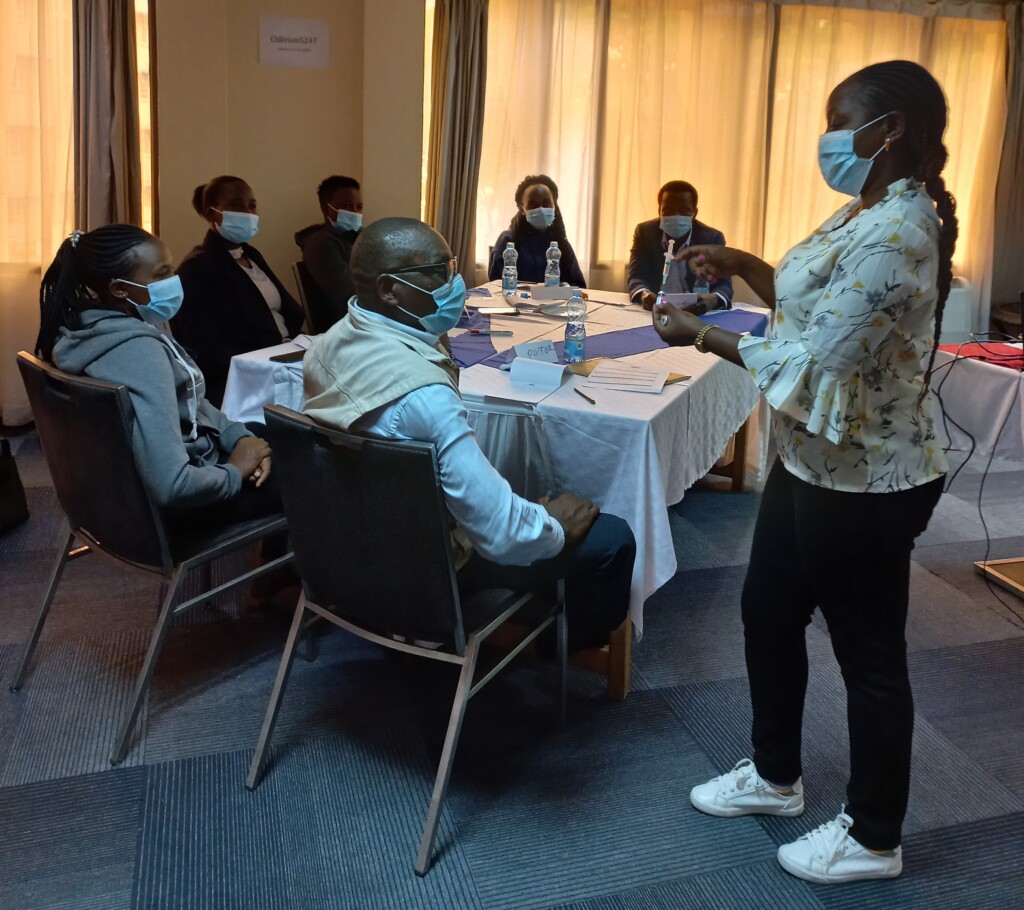
Enhancing Data Management and Reporting
Accurate data is essential for informed decision-making and improving service delivery. To cultivate a data-use culture, the project focused on revising tools for collecting, reporting, and utilizing COVID-19 vaccination data in both Tanzania’s mainland and Zanzibar. Efforts were made to integrate vaccine electronic immunization systems, develop offline mode requirements for the ChanjoCovid system to mitigate limited internet connectivity, and establish standard operating procedures (SOPs) and tools for national data verification exercises. In Kenya, the project leveraged the use of established IMPACT teams to enhance data use. Through the utilization of Chanjo KE and Google Sheets for data triangulation, the team developed key performance indicators for sub-county IMPACT teams, enabling them to monitor vaccine reporting rates, coverage rates, stock status, and wastage rates. Quarterly reflections facilitated experience sharing and cross-learning across countries, with teams from Tanzania, Kenya, and Malawi (also supported by ELMA) sharing their COVID-19 coverage progress, challenges, and lessons learned.
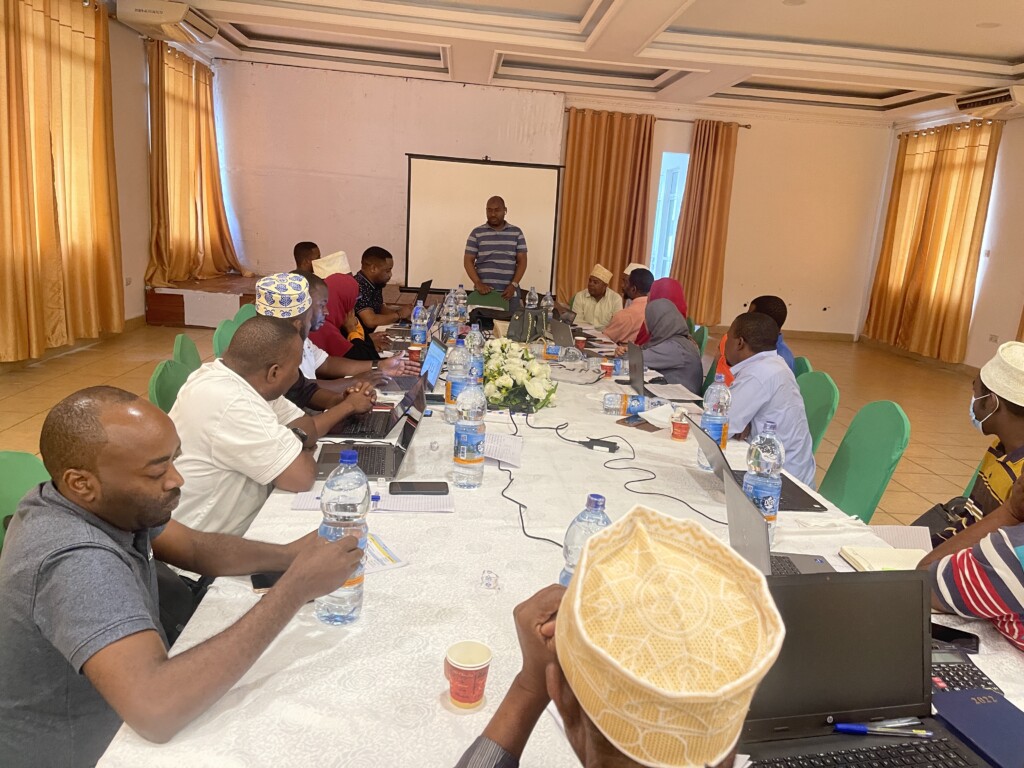
Successful Vaccination Campaigns
Outreaches and Innovation
One contributing factor to the success of vaccination campaigns in Tanzania was the integration of outreaches with routine immunization campaigns. Efforts were made to prioritize vulnerable groups, including older adults, individuals with comorbidities, immunocompromised individuals, people with disabilities, pregnant women, and frontline health workers. JSI and inSupply Health played a vital role in supporting and facilitating the COVID-19 vaccination campaign, including engaging community health workers, dispelling misconceptions, and increasing vaccine acceptance. The team collaborated with local authorities to set performance targets, while encouraging continuous feedback and communication through platforms like WhatsApp to address challenges promptly. Additionally, they reinforced the use of the Chanjocovid system for data reporting and analysis and conducted supportive supervision visits to ensure the constant availability of vaccines for COVID-19 vaccination services at health facilities. Collaborating with other implementing partners, the team facilitated the vaccination of 650,583 clients in Singida, Njombe, and Zanzibar. By May 2023, Tanzania had achieved an impressive vaccination coverage rate of 105.82% among clients aged 18 and above, with notable percentages recorded in Singida (92%), Njombe (103%), and Zanzibar (80.9%).
In Kenya, the JSI and inSupply teams worked closely with each county to structure and design the outreaches, reducing the team sizes to achieve more outreaches and extend their duration. Community mobilization efforts successfully fostered trust in the COVID-19 vaccine among hesitant individuals, and innovative strategies like mobile vaccination outreaches and performance-based compensation for community health volunteers led to increased vaccination outputs. The integration of outreaches with Human Papillomavirus (HPV) and Measles-Rubella vaccination campaigns further leveraged existing relationships with communities and established frameworks for communication and outreach. Across four counties (Mombasa, Nairobi, Homabay, Vihiga), 433 outreaches were supported, resulting in the administration of 95,523 doses of COVID-19 vaccines and 11,003 doses of HPV vaccines.
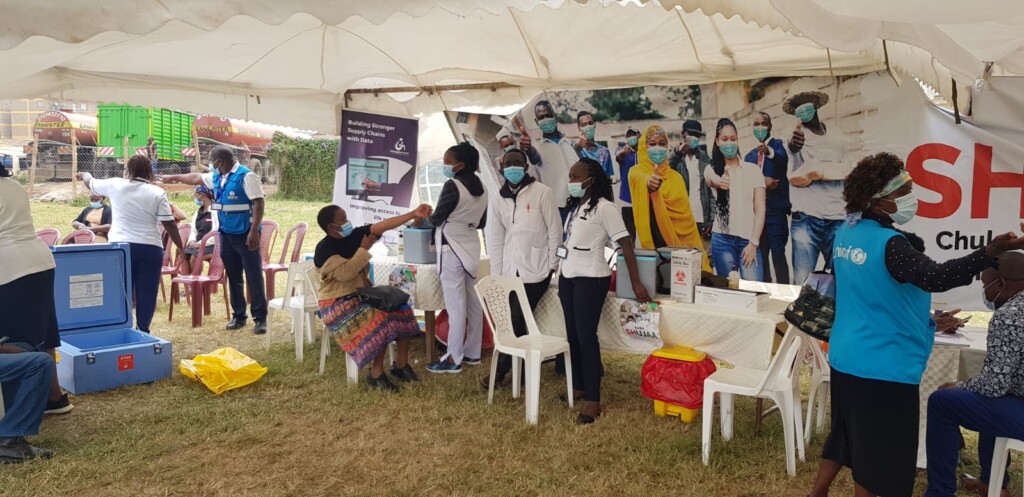

Learning Forums
Stakeholders in Nairobi and Mombasa counties aimed to enhance their COVID-19 vaccination program by organizing cross-learning workshops. These workshops, conducted twice, facilitated sharing experiences and best practices, addressing key challenges like vaccine hesitancy and supply chain management through community-based awareness campaigns and technological inventory management. The workshops also used Ripple Effect Mapping (REM) to assess outcomes and orient sub-county teams on COVID-19 KPIs. Unintended outcomes involved forming partnerships, gaining private-sector support, and expanding HPV vaccine coverage. Moving forward, the workshops stressed the importance of coordination and continuous stakeholder engagement for ongoing success.
Challenges
In both countries, the dynamic nature of the virus and shifting government priorities placed significant strain on the health system. Limited public awareness surrounding the vaccine, along with vaccine hesitancy and misinformation, proved to be major hurdles in implementing the project. Public awareness campaigns and educational initiatives were necessary to emphasize the safety and effectiveness of the vaccine.
In Kenya, vaccine availability posed a significant challenge, leading to temporary halts in outreaches. System challenges with the Chanjo KE platform impacted the monitoring of COVID-19 stocks and wastages. Low reporting practices resulted in data discrepancies due to unfamiliarity with daily reporting and internet connectivity challenges at facilities.
In Tanzania, data discrepancies occurred, with reported coverage rates exceeding 100% of the target population. Potential reasons included reporting errors or misrecording the number of vaccine doses administered.
Implementation challenges in Tanzania were also influenced by the unique local context, requiring adapted strategies to address specific community needs and cultural norms. The vast geographical area posed logistical hurdles for distributing vaccines to remote regions, requiring extra resources and personnel. Limited government resources, including funding and medical equipment, added to the challenges, necessitating a collaborative and agile approach.
Lessons Learned and Recommendations
The project learned valuable lessons, emphasizing the importance of monitoring and evaluation, data visibility for decision-making, equity in vaccine distribution, and the utilization of various strategies to reach vulnerable populations. Training, supportive supervision, and collaboration with partners were crucial for successful implementation. They encourage continuous reinvention of strategies for maximum impact.
For the future, integrating COVID-19 into Primary Health Care in Tanzania is recommended for programmatic efficiency and sustainability. Enhancing data collection and reporting mechanisms, along with data analysis and research, will inform future strategies. Integrating the Chanjocovid system with existing health information systems is essential for efficient data sharing and analysis. Collaboration with technology partners and experts can strengthen the vaccination system. In Kenya, cross-learning workshops should continue to optimize the COVID-19 vaccination program and continuously improve the system to help in tracking supply chain indicators like the wastage rates. Collaboration with partners and prioritization of critical changes are essential to address vaccine unavailability. Continuous training, supportive supervision, and integrating COVID-19 vaccination outreaches with other vaccination efforts can boost vaccination uptake and promote healthier societies.
Conclusion
The joint efforts of inSupply Health, JSI, and partners supported by the ELMA Foundation, significantly strengthened COVID-19 immunization campaigns in Kenya and Tanzania. Through strategic planning, innovative outreach initiatives, and capacity-building, both countries made remarkable progress in vaccinating their populations. Lessons learned from this project provide valuable recommendations for the future, serving as valuable resources for other countries and organizations in their fight against COVID-19, promoting healthier societies worldwide.
